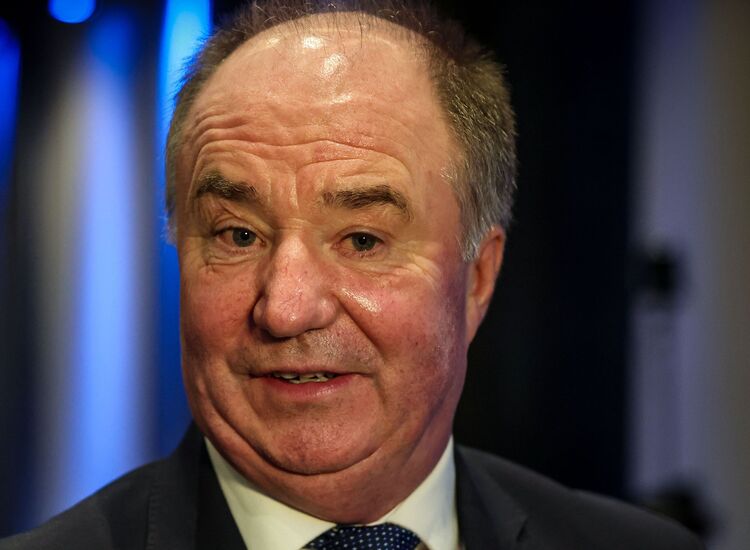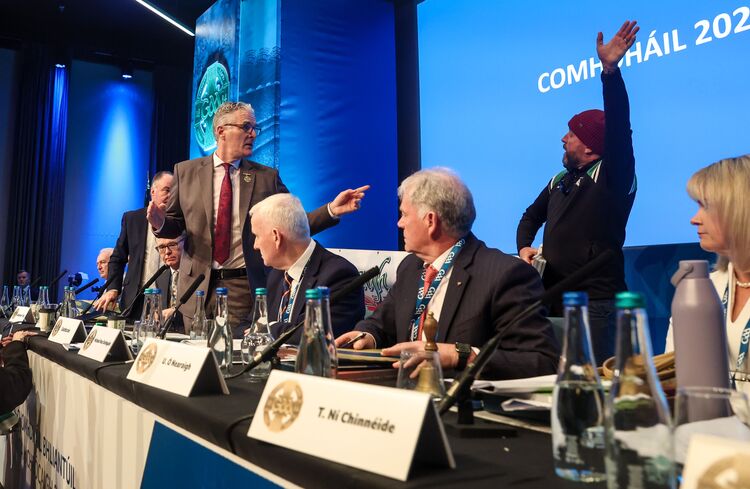Henry Ford, about 1919.
LIBRARY OF CONGRESS
By Peter McDermott
“His ignorance was a source of frequent wonder.”
So writes Bill Bryson, in his wonderfully entertaining history “The Summer of 1927” about one of America’s most famous businessmen, Henry Ford.
The pioneering car manufacturer was additionally a ferocious bigot, and the extent to which his success was down to others or just dumb luck remains a source of debate. Bryson tells here of his ill-fated Fordlandia project, an 18-year quagmire in the Brazilian jungle, as well as the faltering switch from the Model T to the Model A.
Sacco and Vanzetti, Charles Lindbergh, Gene Tunney, Babe Ruth and Alvin “Shipwreck” Kelly were among the headline grabbers of 1927. Ford joined them mainly because of his decision to shut down production for six months, something his company never quite recovered from.
He is one of several iconic business figures in American history who made seriously bad mistakes and who also espoused some outlandish views. The more money some people have, it seems, the more inclined they are to hold forth at length without the benefit of reading or research. Eccentricity is often part of the package. The president-elect of the United States has a whole set of Howard Hughes-like foibles and opinions that were not discussed during the 2016 campaign.
Extremism, too, can come hand in glove with wealth. Dallas oil magnate H.L. Hunt, the world’s richest man in the 1950s, vigorously promoted far-right views.
Business figures, however, have tended to enter the political sphere when tapped for their acumen or expertise. Joseph Kennedy, who made his vast fortune thanks to shrewd deal-making in 1920s Hollywood, was one of the most famous to go that route.
Kennedy had himself come from a political family. He then married into another and was best known later on as the father of three politicians. His own career in public service, though, was decidedly checkered. In 1933, President Franklin Roosevelt appointed him to lead the new Securities and Exchange Commission. He shone in the role. However, his controversial tenure as ambassador to London at a pivotal moment in history put paid to whatever ambitions he may have had for elected office.
Yet, somehow in more recent times the idea has taken root that the ability to make a business deal is sufficient apprenticeship for the most powerful political job in the world.
Donald Trump’s business background was cited a few times earlier in the fall when the Irish Times’ Simon Carswell interviewed six Irish-born U.S. residents who planned to vote for him. Forget the reams of analyses of the past week – the stuff about Rust-Belt pain. It’s simple: Clinton couldn’t get enough of the Democratic vote out. Trump’s electorate is Republican and right-shifting. It’s all there in the Irish Times piece -- the Hillary-hating, the Obama-despising, the Fox News talking points generally, the whining about “political correctness” and the rest.
Businessmen elected
Carswell wisely didn’t press the issue of past immigration status. It would be hard to find a random group of Irish-born U.S. citizens under 65 that didn’t include at least one who was undocumented for a time; it’s beside the point anyway. I never lived in the shadows, but the Irish who did paved the way for my green card and my ultimate citizenship. Either you regard the undocumented millions as pioneers, and mostly good and decent people, or you choose not to.
Alas, we’re talking here about admiration for a candidate who demeaned and insulted the military service of his party’s 2008 presidential candidate. Senator John McCain was routinely tortured during his five and a half years in a prisoner-of-war camp. Trump said: “I like people who weren’t captured.” That would include himself, presumably, even if there are no known instances of the North Vietnamese army or the Viet Cong capturing military-age American males in New York nightclubs or Las Vegas casinos.
The dealmaker stuff, I’d suggest, is just an excuse with a lot of people. It’s not as if it was a big selling-point when four other businessmen made it to the White House in the last 100 years, each of whom brought other skill sets to the office.
First, there was Warren Harding (1921-1923), a successful Ohio publisher and editor. Death in office saved him from the ignominy of the Teapot Dome scandal. His reputation has never recovered. The next on the list, Herbert Hoover (1929-1933), was one of the most intelligent and able people ever to serve in the executive branch and one of the few who could be accurately called a self-made man. A mining engineer by profession, he made a great deal of money in business around the world. He then acquired experience as an administrator overseeing food relief in Europe during World War I and mitigating the effects of floods in the U.S in the 1920s. Although he showed little feeling for the victims, such crises proved good opportunities for self-promotion.
Hoover was a tireless commerce secretary under the lethargic if popular Calvin Coolidge before becoming president himself, his first elected office. One can’t blame him for the Great Depression, but his only response was what the Republicans have been offering again since Ronald Reagan.
America had to wait another 56 years for the next businessman-politician, Reagan’s successor, George H.W. Bush (1989-1993). He had been an ambassador and director of the CIA in addition to his career in the oil industry. His son, the only president who earned an MBA (from Harvard Business School), followed him into the industry and was later co-owner of the Texas Rangers baseball team. George W. Bush (2001-2009) is the only one of these four businessmen who was elected to a second term – largely on the basis of his being a wartime president.
Authoritarian turn
The Republicans are the more business-orientated party and some of them would be happy enough if the U.S. Chamber of Commerce were allowed to run the country. But that would explain Mitt Romney, not Trump.
The latter’s status as a businessman mainly serves to give his single idea over decades – America is being “ripped off” – a certain plausibility with voters. The people who negotiate trade deals are “stupid,” he has said, and business people should be in the room instead (though some might argue labor leaders would be better). The reality is that America plays hardball with the world, not least when it sends the best and brightest to negotiate, and ultimately the country is a net beneficiary of such deals.
Trump’s “I’ll fix it all” message in 2016 represented an authoritarian and populist turn that had both Republicans and Democrats scrambling to cope. The sheer crudity of the pitch was an integral part of the strategy and the ideology.
A majority of Republican intellectuals clearly despise him, but that doesn’t seem to matter much. Nor does the fact that out of the thousands of newspapers in the U.S., just four endorsed him; or that Trump’s ghostwriter for “The Art of the Deal” has described him as a sociopath; or that academics or investigative journalists who’ve done other Trump books have similarly negative opinions.
Neither Bush, the only living Republican presidents, voted for the GOP candidate. McCain and other party bigwigs wrote in other names.
Finally Trump’s election was greeted by pundits the morning after in apocalyptic terms. Andrew Sullivan, for instance, raised Catholic and Tory in England, said that his adopted country had gone over the “constitutional cliff,” while the New York Daily News’ headline, on a White House backdrop, screamed “House of Horrors” and New Yorker editor David Remnick’s commentary was headed “An American Tragedy.”
We’ll see. Whatever happens, it won’t be business as usual.









